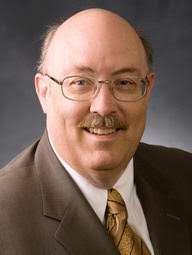By: the Pseudonymous George Rasmussen
A Houston businessman named Sam Young is currently staging a hunger strike on the sidewalks of Salt Lake City. Young describes himself as an active member of the Church of Jesus Christ of Latter-day Saints, but I will leave it to you, gentle reader, to determine for yourself what the evidence shows.
Young is hoping to exert sufficient pressure on the Church to force the adoption of his demands. Please note that the Church put out a statement on Sunday that says Church leaders have met with Sam and that the Church will not be caving.
What are his demands? It is difficult to be sure because they have changed so much over the years, but we have some indication from a petition from October 2017:
“We call on the LDS Church to immediately cease the practice of subjecting children to questions about masturbation, orgasm, ejaculation, sexual positions or anything else of a sexual nature. This applies to all children up to and including age 17. There should be no one-on-one interviews with children. A parent or other trusted adult of the child’s choosing is to be present. We call on the LDS Church to publicly disavow this practice. We call on the LDS Church to ensure that all congregational leaders, as well the general membership, are informed that this practice is prohibited.”
(Readers, please note that Church policy clearly states that bishopric members may ask about chastity during temple recommend interviews. Children from the ages of 12 to 17 are asked if they follow the law of chastity, just as adults are asked. Claims that bishoprics are asking detailed sexual questions of members are wildly exaggerated, but all bishoprics have been informed of this issue. Bishopric members always have another adult nearby when doing temple recommends. It is clear that Sam Young has grabbed on to a cause that will bring him attention, but as this post will show, we have reason to doubt his sincerity on this and other issues because of his constant complaints about many Church practices.)
This petition is the first exposure most people had to Sam Young, but it wasn’t the start of his activism against LDS doctrines, teachings and practices. Young describes on his website how he lost his testimony in 2014. “Over the past couple of years, unexpected philosophical developments have shaken my life. They have been quite disconcerting.” He tells a tail of being set adrift and of being lonely and scared. He recollects that his family and friends couldn’t understand what he was going through.
Continue reading

